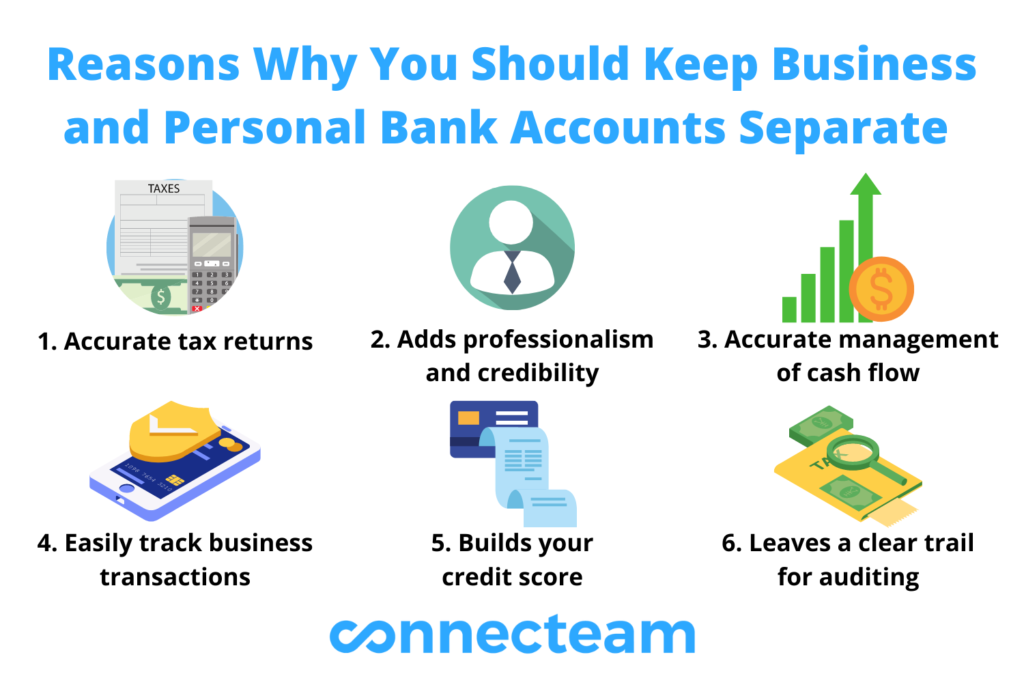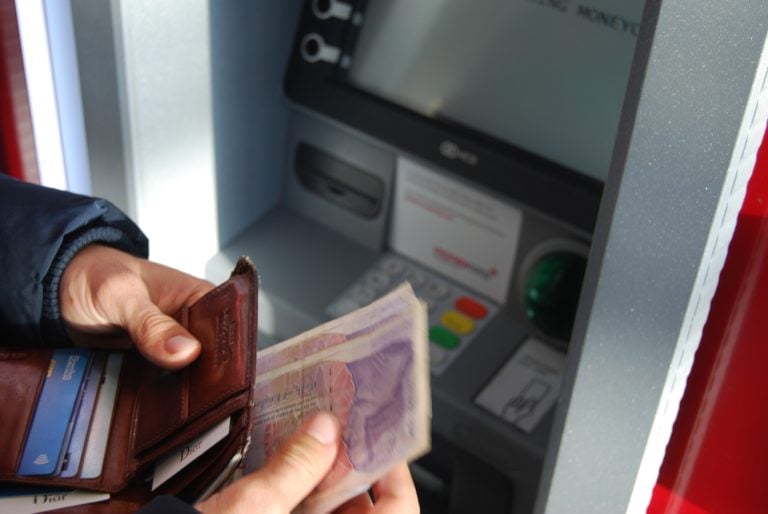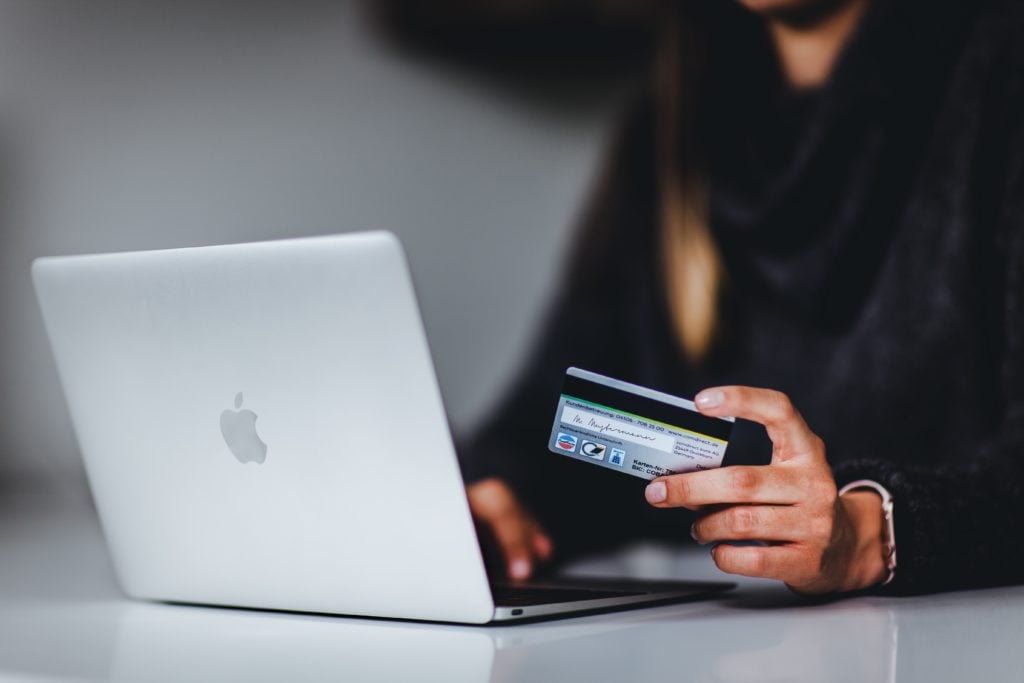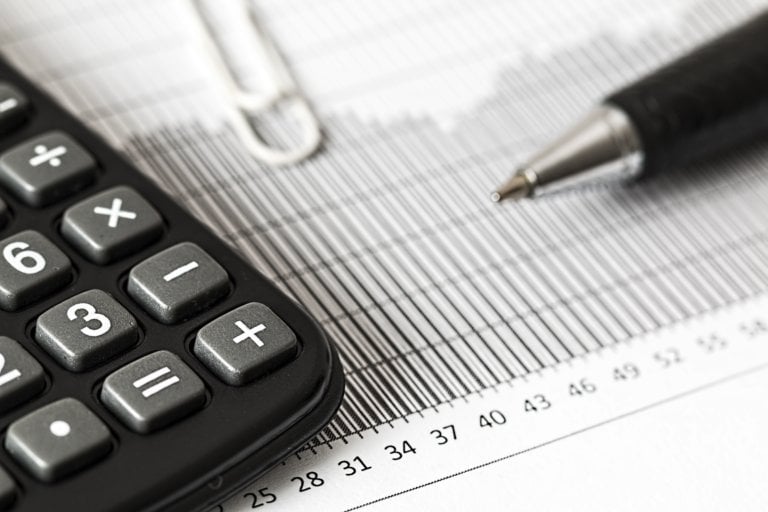Running any business can be difficult. But a few changes here and there can make all the difference – especially from a financial point of view. A lot of business owners make the classic mistake of blending their personal and business finances together. We’re here to share some reasons why you need to open up a business bank account.
You might be heading for a financial disaster if you’re running your business finances through your personal bank account.
Yes, we’re serious. It’s a recipe for confusion, meaning your personal and business transactions will end up blending together, resulting more often than not in absolute chaos in your day to day operations.
We get it: business banking isn’t free. While this is bound to dissuade some of you, we strongly recommend that you open up your own business bank account. (Especially if you want to save time and money in the long run!)
Let’s take a look at some key reasons why you need a business bank account for small business.
Keeps Your Personal & Business Transactions Separate
The most obvious reason to open up a business bank account is to separate your finances, and that makes sense to have one place to make all business payments and another for personal transactions.
One of the key benefits of this is that this financial separation can protect account holders from liability, just in case someone tries to sue you or serious workplace incidents occur.
It’s also worth noting that simply registering as a business entity (or a limited liability corporation) doesn’t automatically protect you from liability. You also need to make sure that you are actively keeping personal and business finances separate.
Simplifies Your Taxes
The IRS requires that small business owners have a business bank account as well as a personal one. While it’s not legally mandatory to do this, it certainly helps make things simpler from a tax point of view.
Small business owners are expected to pay taxes on a quarterly basis. If you end up doing this through a personal checking account, calculating business income, expenses and meeting pay periods can prove to be time-consuming and complicated.
Also, sole proprietors are required to identify both their personal and business transactions, regardless of the account they use in order to file taxes accurately. This applies to all industries, whether you’re running a manufacturing company, a construction site or working in hospitality. It’s also worth noting that personal transactions can fall under scrutiny if your company gets audited.

Makes Your Business Look More Professional
While many small businesses start off as money-making hobbies, it’s just a matter of time before you need to up your professional game. Opening a business bank account is a great step in the right direction, adding legitimacy to your business. Clients are going to take you more seriously, especially when transactions are made to and from an account that doesn’t use your personal name.
For example, let’s say your name is John McGregor and you work in retail, running a pet store called Perfect Pets. A customer is going to feel like they are in safer hands when making a transaction to the Perfect Pets account than they are to an account in the name of John McGregor.
A business bank account is also essential in order to receive different types of compensation and payments from clients. Due to not using a payment service provider, a personal account limits this considerably. The more kinds of payments and transactions you are authorized to make, the more professional you will look.
It’s also worth noting that having a business account doesn’t automatically give your company business status. However, it will show the IRS that your company is credible.
If you don’t have a business account, then you are unable to show your profits in an audit. This means that the IRS may classify your company as a hobby. And as a result, you may not be able to deduct expenses on your tax returns. This can make things tricky when determining whether to use 1099 or W-2 tax forms for your employees.
Builds A Business Relationship With Your Bank
If you have a business bank account, then you will be able to establish a much more professional and beneficial relationship with your bank. With a personal account, you can be seriously limited as to how much you can take out and put into it. But with a business account, you have much more flexibility.
Small business owners will be able to:
- Allocate credit cards to your employees.
- Receive loans for large company expenses.
- Keep your company’s borrowing fees and interest charges separate for filing your taxes.
Build credit. This is very important for businesses that need to buy a lot of stock. For example, retail businesses that need to spend more money in preparation for the Christmas season.
Offers Many Incentives
Opening up a business account at the same bank as your personal account can provide low fees and good benefits. It’s important though to shop around to ensure that you find the best deal for you. This is because fees and rates vary depending on the bank.
Some things that are worth looking out for when opening a business bank account include:
- Overdrafts
- Interest rates for lines of credit
- Interest rates for checking and savings
- Early termination fees
- Minimum account balance fees
- Transaction fees
Saves Time And Money
Opening a business bank account is bound to make professional transactions easier for you, your accountant, your bookkeeper and everyone else in your company. It will certainly save a lot of time when needing to identify transactions to create statements.
Also, it will reduce business costs in the long run.
And there are tools that business owners can use to save time and money. All-in-one work apps like Connecteam have features that will help make payroll easy (and banking too).
Use the time clock to accurately lay out your employees’ work hours, and have all of your accounting needs sorted with its seamless QuickBooks Online and Gusto payroll integration – all you need to worry about it making sure your employees are clocking in and out, Connecteam will handle the rest!
Having a separate bank account can help you understand where all of your money is being spent. Get an easy, location-based overview of where and when you’ve worked. This will help with your expenses and billing. It will also maximize time tracking compliance.
Track Time Better For Your Business Bank Account
Connecteam also makes it easier to gather financial information when it comes to filing taxes. Therefore, it doesn’t necessarily just save time, it could also save money when it comes to accounting fees. Without being digitized, you could be spending much more than you realize.
Use the app for staff scheduling to easily schedule shifts and know quickly who’s working, where and when their shift is and how this affects your expenses.
It’s also worth mentioning that Connecteam helps make your workflows more streamlined and professional. As your business grows, so does the app.
The Bottom Line On Opening A Business Bank Account
As previously established, opening a business bank is super important for a variety of reasons. It facilitates a business relationship with your bank, makes your company look more professional, simplifies your taxes and saves time and money, amongst other things.
As your business grows, adding an element of technology like Connecteam can help seamlessly complement the opening of your business bank account. You can ensure that payroll becomes efficient and that money isn’t being wasted.
Without being digitized, you could be spending much more than you realize. When you open a separate bank account, you no longer run into the problem of confusing your business transactions with your personal ones.





